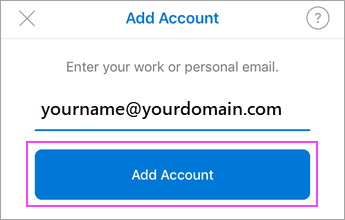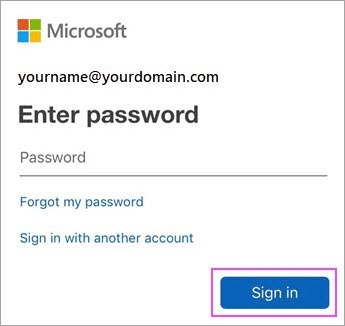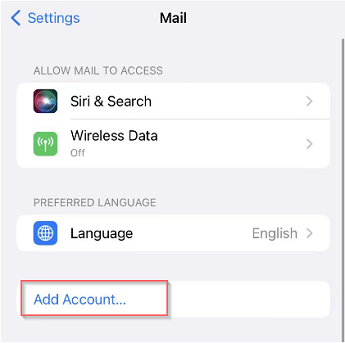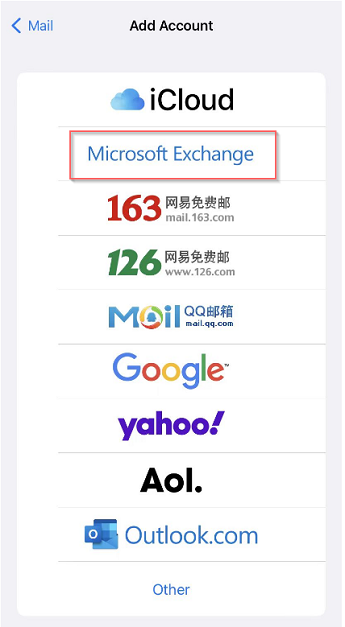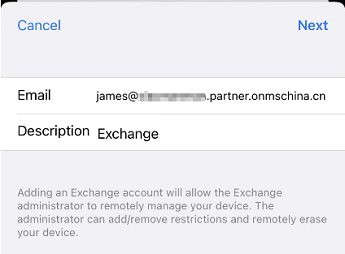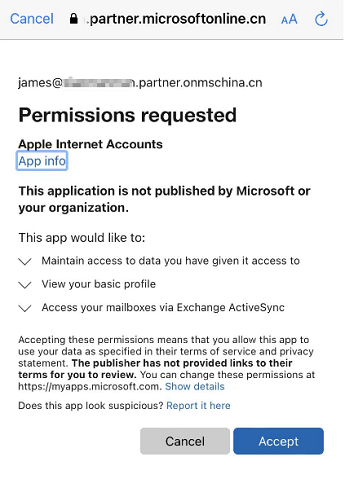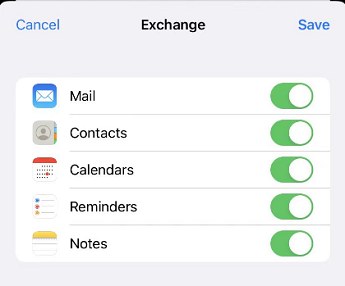Note: This topic applies only to Microsoft 365 operated by 21Vianet.
You can set up your email account using the Outlook for iOS app available from the Apple Store or the built-in iOS mail app.
Set up email with Outlook for iOS
If you don't have it yet, download it from the App Store.
Note: Available for iOS devices using iOS 10.0 or higher.
Note: First time using Outlook for iOS? Just tap Get Started.
Tap Settings
Note: If you're prompted for more information, you may have to manually setup or use IMAP or POP.
Set up email with iOS Mail app
Note: Your email address should be your Microsoft 365 business account or school account. Such as you@contoso.cn.
Enter the password associated with your email account. Select Sign in.
The Mail app may request certain permissions. Select Accept.
If you're using a Microsoft 365 account operated by 21Vianet and you're prompted to enter settings manually, or you need server settings for IMAP or POP, use the following if available:
Incoming Server Settings
-
Domain\Username Make sure your full email address appears. For example, yourname@contoso.cn.
-
Password Use the password that you use to access your email.
-
Server Use partner.outlook.cn for Microsoft 365 accounts operated by 21Vianet.
-
Port Use 443 or 993.
-
Security type Select SSL/TLS or make sure the Use secure connection (SSL) checkbox is checked, then tap Next.
Outgoing SMTP Server Settings
-
SMTP Server Use smtp.office365.cn for Microsoft 365 accounts operated by 21Vianet.
-
Security Type Choose TLS.
-
Port Number Enter 587. Tap Next.
Note: If you're setting up an Exchange-based account and you don't know the name of your Exchange Server, you can Find your Exchange ActiveSync with the expander below.
If your email program is not able to automatically find your Exchange ActiveSync server name, you may need to look it up.
If you’re connecting to your Microsoft 365 email, use partner.outlook.cn as your Exchange ActiveSync server name. The Exchange ActiveSync server name partner.outlook.cn can be used if you are using the latest version of Microsoft 365.
If you’re not using Microsoft 365 or if you aren’t sure if you are using the latest version of Microsoft 365, follow these steps to look up your Exchange ActiveSync server name. Follow these steps to determine your Exchange ActiveSync server name.
-
Sign in to your account using Outlook Web App.
-
In Outlook Web App, on the toolbar, click Settings
Note: Although you’re not setting up a POP3 or IMAP account, you’ll use the POP server name to determine your Exchange ActiveSync server name.
-
On the Settings for POP and IMAP Access page, under POP setting, look at the value for Server name.
-
If the Server name shows partner.outlook.cn, your Microsoft 365 account is on the latest version of Microsoft 365, and you can use partner.outlook.cn as your Exchange ActiveSync server name.
-
If the Server name value is in the format podxxxxx.partner.outlook.cn, your Microsoft 365 or other Exchange Online account is not yet on the latest version of Microsoft 365, and you can use m.partner.outlook.cn as your Exchange ActiveSync server name.
-
If the Server name value includes your organization’s name, for example, pop.contoso.com, then your Exchange ActiveSync server name is contained in address bar in your browser when you are signed in to Outlook on the Web--but without the leading https:// and without the trailing /owa. For example, if the address you use to access Outlook on the Web is https://mail.contoso.cn/owa, your Exchange ActiveSync server name is mail.contoso.cn.





